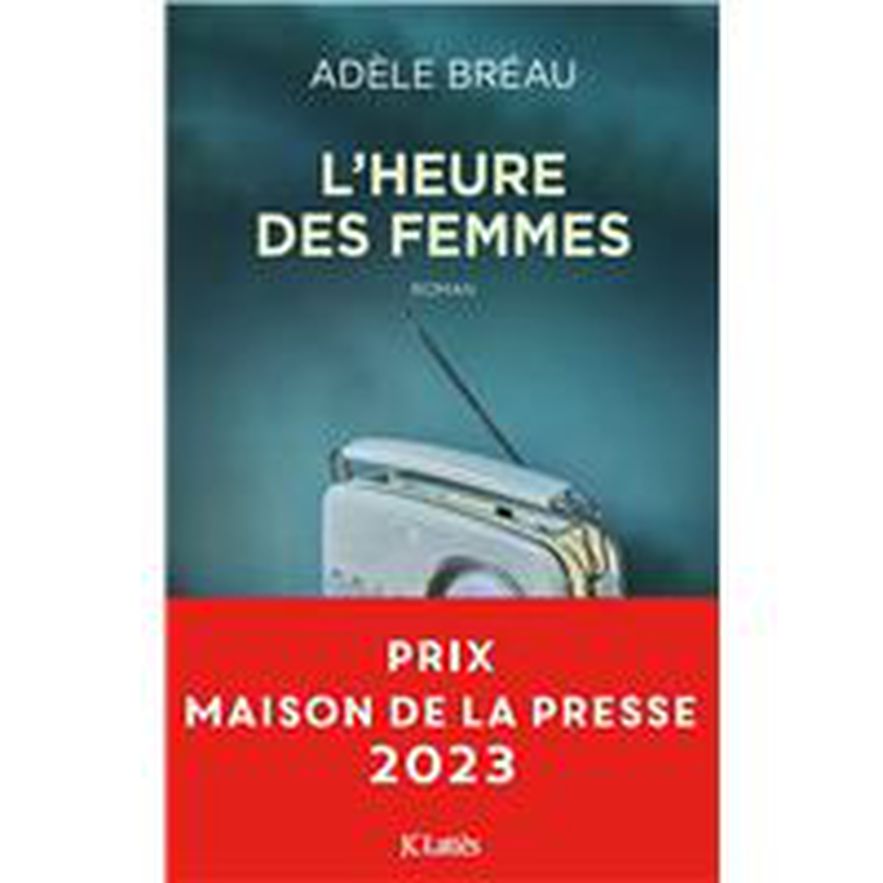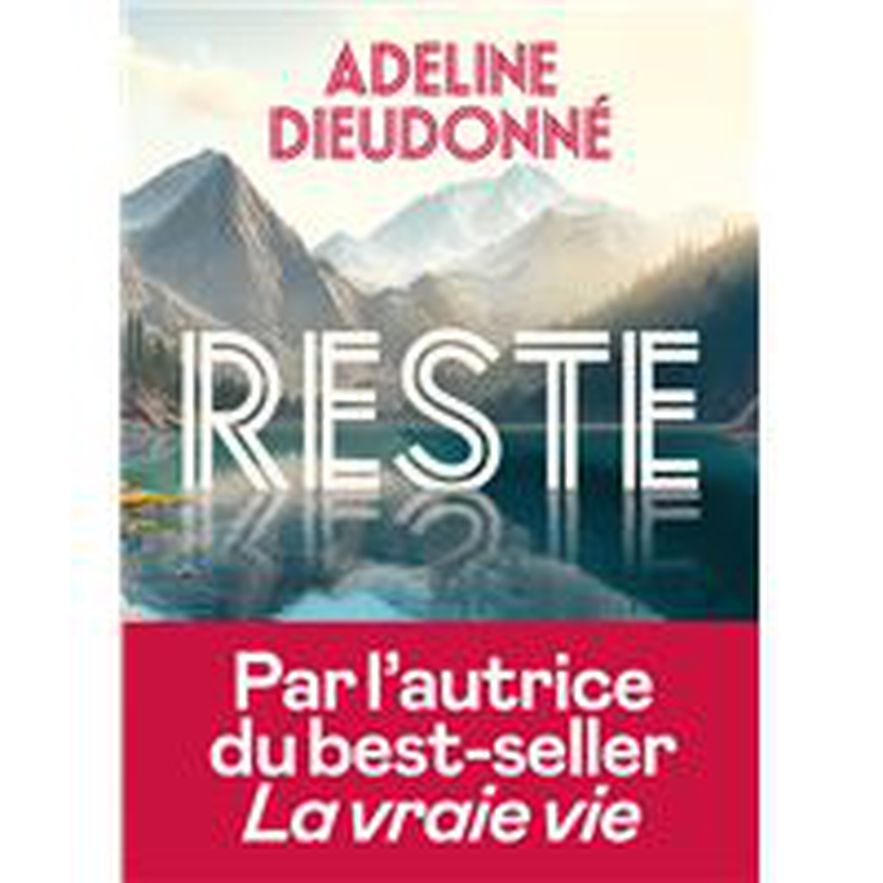The second installment of a feel good book politics, the new epistolary novel by Adeline Dieudonné, the romantic fresco by Adèle Bréau around the figure of her grandmother, Ménie Grégoire, etc. L’Express offers you a selection of five fictions to get your teeth into this summer.
For hopeless utopians
Hadrian Klent, life is ours
A delicious political fable, signed Hadrien Klent
© / The Tripod
Her previous novel, Laziness for all (2021), had the effect of an oasis in the middle of the desert. We had a hard time closing this delicious political fable. And above all to leave his hero, Emilien Lelong, Nobel laureate in economics propelled, almost in spite of himself, presidential candidate with an explosive program: to reduce the working time of the French to 3 hours a day to rediscover the pleasure of living. In life is ours – published this spring in the Tripode -, we find him three years after his election. Since coming to power, Emilien Lelong, accompanied by his heterogeneous team, has endeavored to keep his commitments: the country has therefore moved to a 15-hour week and is preparing, for example, to ban the use of absolutely all pesticides. However, can a president, however exceptional, really govern and do politics differently? And this without ever betraying the trust of its voters? Because everything is not so simple, of course.
While those nostalgic for the old world give him a hard time, his desire to fundamentally reform the concept of governance could well cost him dearly. With this second opus, a sequel that can also be read separately, Hadrien Klent (it’s a nickname) continues to dig into a vein that he himself invented: the feel good book policy. Enamelled with solid economic, social and political references, and in particular the summoning of the memory of the Front Populaire visible from the title, this sparkling novel remains very accessible. If we regret a few passages that turn to the presentation, we come out absolutely delighted with this utopia that we would like to be realistic.
life is ours, by Hadrian Klent. Le Tripod, 352 p., €19.
For those nostalgic for “it was better before”
Adele Breau, women’s hour

The new novel by Adèle Bréau, Maisons de la presse 2023 prize
© / JC Lattes
If the younger generations certainly no longer remember her, Ménie Grégoire – born Marie Laurentin – was nevertheless, for years, an essential figure in the lives of millions of French women. Since his first articles in the journal Mindto his cult shows, such as “Allo, Ménie”, broadcast on RTL from 1967 to 1981, including his best-selling book woman’s profession (Plon, 1964): this flamboyant radio star took part, long before her time, in the movement for the liberation of women’s speech. She handed them a microphone, an important sounding board but, even more, an attentive ear to issues hitherto silent: relationship to motherhood, sharing of domestic tasks, abortion, sexuality, contraception, pleasure, violence… With women’s hour (Lattes), his granddaughter, Adèle Bréau, fashion director of the magazine Gala, pays a nice tribute to the one we nicknamed “the lady of hearts” thanks to an addictive romantic fresco. The author, to whom we owe several best-sellers, and in particular the Sissies – his latest book, which has sold more than 150,000 copies in all formats – once again demonstrates perfect mastery of the codes of a successful saga.
Interweaving the threads of women’s destinies and alternating eras, it goes well beyond the fictionalized biography and offers a dive into France from the 1960s to the present day which highlights the upheavals of the female condition thanks to a gallery of complex characters moved by a real sisterhood. A book much less light than it seems, punctuated with reproductions of certain letters from listeners who give a furious desire to listen to the programs of Ménie Grégoire. It should also be noted that the hundreds of thousands of letters received, which she herself described as a “sociological treasure”, are today deposited in the departmental archives of Indre-et-Loire.
women’s hour by Adele Breau. JC Lattes, 465 p., €21.50.
For fans of Brittany
Vanessa Bamberger, The breakers

At the same time thriller, romance, drama and atmospheric novel.
© / Liana Levi
Impossible to close this beautiful novel before knowing. Knowing what binds Marion painfully to her mother and to the sea. Knowing what binds her to a place that is paradoxically forbidden to her and to the fleeting memories of her older brother, adored by her mother. It is on the island of Batz, magnificently described, that she will loosen her ties, unraveling a skilfully constructed family secret. We find here the power of evocation that has inhabited the writing of Vanessa Bamberger since Viola Braco (2019 – France Bleu-Page Booksellers Prize). This way of restoring smells, colors, materials, atmospheres as closely as possible, thus managing to map with an unforced poetry landscapes that become familiar to us.
The other strength of the text is based on a psychological accuracy, a finesse of the gaze, the extent of which we had already been able to appreciate in his last work, The Perfect Child (2021). On arrival, a clear and protean story, mixing thriller, romance, drama and atmospheric novel that we cannot let go. We have to wait for its ultimate outcome to understand what singular, and perhaps yet universal, plot the author has woven between mothers and tides.
The breakers, by Vanessa Bamberger. Liana Lévi, 189 P., 19 €.
For a great escape between lovers
Adeline Dieudonne, Stay

By the best-selling author, The Real Life
© / The Iconoclast
M is dead. The man the narrator loved madly is dead. And she’s the only one who knows it. Alone with her body, which she cannot leave, a fierce, sensual and desperate vigil. To keep the obvious at a distance or to tame it better, she starts writing two letters addressed to her lover’s wife. She recounts these days on the run alongside a corpse, once an exquisite body, but also their long story of love and friendship which implicitly draws its own story. The result is an improbable epistolary novel as offbeat as it is balanced. When the raw details of the state of the corpse – which the narrator in her courageous and foolish concern for “truth” does not spare us – could put us off, a solar memory of happy love arises. When the bottomless pain of loss could take us by the throat, a cheeky, cheeky or prosaic reflection tears us away from the requiem. When the splendor of this love story threatens to turn into a fairy tale, we meet, also emerging from the imagination of childhood, an improbable and disturbing witch who bears all the pain of women.
Beyond the story of a love and its impossible mourning, Stay (The Iconoclast) explores the possibilities of emancipation. The romantic trajectory of the narrator – from the dazzle of adolescence to her meeting with M. -, goes through a rape whose description seizes us in the guts by its accuracy. But also by a conjugal life made up of silences and renunciations, a long subjugation of “sexy girl in shorts“which does not imagine being anything else until the discovery of itself. As in The real life (2018), her first successful novel, we are struck by the bite of Adeline Dieudonné’s writing, her chilling and sometimes funny sobriety. A great success.
Stay by Adeline Dieudonne. The Iconoclast, 282 pages, €20.
For young parents with a strong heart
Evelyn Piper, Bunny Lake is gone

A novel by Evelyn Piper, adapted by Otto Preminger in 1965.
© / Of Christmas
This is a thriller as addictive as it is Machiavellian that brilliantly defies all the reader’s predictions. The story resembles those nightmares that assail some parents at the dawn of the new school year. Blanche Lake, a single mother recently moved to New York, drops her baby girl Bunny off for her first day of kindergarten. With a heavy heart, she returns to her job and is eager to find her child. In the evening, while she waits for the end of the classes, she already imagines the tender reunion. But the minutes pass and there is no trace of the familiar little silhouette. Worse, no one seems to remember the little girl, no paper attests to her registration and the police find no trace of her presence in the family apartment. Besides, does Bunny really exist?
Built over 24 hours, this crazy quest in the heart of 1950s New York is shrouded in deliciously vintage Hitchcockian light. The story of this descent into hell of a mother, alone against everyone, is all the more effective as it is carried by a sober and descriptive writing. If the scenario does not seem unfamiliar to you, it may be because Bunny Lake is gone (Denoël), originally released in the United States in 1957, was adapted for the big screen in 1965 by American director Otto Preminger, which is worth seeing. In France, it was published in 1961 by Denoël, whose desire to republish this book is welcomed, thus pulling out of the shadows a beautiful and timeless text signed by the American thriller author Evelyn Piper (real name, Merriam Modell) , disappeared in 1994.
Bunny Lake is gone, by Evelyn Piper, translated from English by Jean Slavik. Denoel, 245 p., €21.
